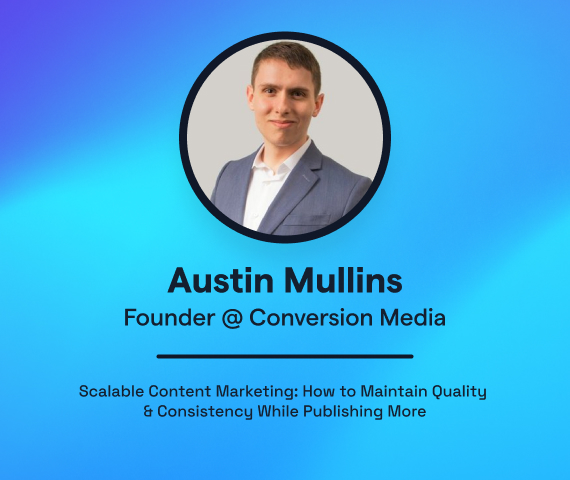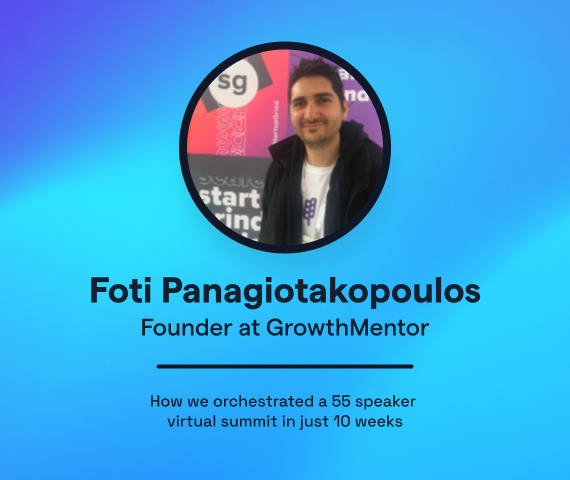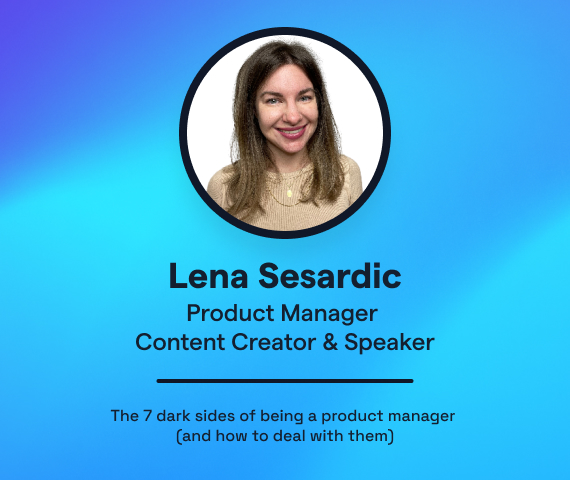Riding the Wave: Dealing with ADHD as a founder
The superpower of ADHD is also a difficulty. In this article, Nathan discusses the effects ADHD can have on your business as well as daily self-care strategies.
Richard Branson, Bill Gates, and Ikea founder Ingvar Kamprad are all successful entrepreneurs but they also have one other thing in common – they live with ADHD. While ADHD can make you more creative and push certain strengths that are vital as a founder, it also comes with its own challenges.
I realized I had ADHD in my late twenties and know what it’s like to run your own business. As a coach and consultant, I have helped over 750+ people all over the world with their goals. In this post, I wanted to share with you how ADHD can affect you in your business and how you can support yourself daily when you struggle with ADHD.
Why ADHD isn’t an ideal label
To start off, I’m not the biggest fan of the label ADHD. The name attention deficit hyperactivity disorder doesn’t point towards the real challenges that people with ADHD experience.: We could frame it as finding it hard to focus, but that probably isn’t a complete picture either. Some people with ADHD are super attentive but they’re just attending to way too many things at once.
Imagine it like having bad Wifi. You want to do all the things you have on your list, but you can’t connect properly. In some rare moments, when you get that connection, you fly through your task list and get everything done. But most of the time you seem unable to get to where you want to be and feel stuck.
Many people also can still have ADD without being hyperactive. When society thinks of ADHD, they often have the idea of a young boy who can’t sit still. Unfortunately, this perspective leads to women not getting a proper diagnosis. But ADHD comes in many shapes and forms. Dr. Daniel Amen believes that there are seven types of ADD, each with its unique symptoms and treatment strategies.
The power of a diagnosis
I remember when I first realized I might have ADHD: I found a test on the internet on how likely it is you have ADHD. Even though I tried to be conservative with my answers, the result was 92%. It was a powerful experience that made me indulge myself in the topic and learn more about the disorder.
Everything all of a sudden seemed to make sense – I felt like I was looking behind the matrix. It gave me a roadmap to how I’ve been living for the last 27 years and made me finally understand why things are happening the way they are.
While many people have very strong opinions on getting a proper diagnosis and working with someone who’s an expert in ADHD, I’m not against self-diagnosis, especially as a starting point. If you see those patterns in yourself and want to find out more about what helps people with ADHD, go for it. The same tools will also help you. But of course, a proper diagnosis can be really important, especially if you want to get medication.
Many people with ADHD get initially misdiagnosed
Unfortunately, many people struggling with ADHD will not get a proper diagnosis in the beginning. Even when you go to a therapist or psychiatrist, chances are that you will get misdiagnosed. An initial wrong diagnosis can happen because many of the symptoms you experience with ADHD overlap with those of other conditions such as depression or anxiety disorders.
There’s a book with a great title by Kate Kelly called “You mean I’m Not Lazy, Stupid or Crazy” which sums up the feeling of getting a proper diagnosis. The moment when people get medicine or get into a program that supports the right nutrition or supplements, all of a sudden they don’t have the same depression levels as before. The recognize all the negative self-talk they had developed because they didn’t understand more about themselves.
ADHD is both a challenge…
As a business owner with ADHD, I had to learn to create my way of running a successful business. Accepting my limitations allowed me to find a unique path forward. Sometimes you might feel like you want to do everything but it’s so much more helpful to play into your strengths. I let go of a lot of areas I tried to dabble in before and understood that I’m great at being a visionary leader.
If you’re an entrepreneur, it’s vital that you find people around you that you can collaborate with or delegate to and to get systems in place that will allow you to delegate in a convenient way. You are the one who is calling the shots, so set yourself up for success with routines and systems that work for you.
Imagine you saw someone pulling up with a Lamborghini at a lumberyard and loading timber on top of the car. You’d probably think: What are they doing? Why would they use a Lamborghini to do this heavy lifting?
We don’t recognize that in our lives we tend to do this with ourselves. A Lamborghini is great for certain tasks but it’s not great at carrying a whole lot of wood. Still, you would never say a Lamborghini isn’t a great car, it’s just not used for its best purpose in this situation.
When we recognize what is our speciality and don’t try to be something else, we can truly thrive. Sometimes you have to say no to certain opportunities so that you can focus on the things that you excel at.
While you might wish you were a truck that can carry timber, you might be a Lamborghini. Why waste your talent on trying to be something that you are not? Don’t compare yourself to other entrepreneurs thinking that you have to do what they do. Growing is not a linear path and even when you started at the same time, you might not be in the same space now.
… and a superpower:
Having ADHD can also be an amazing superpower for founders. Many entrepreneurs start their own companies because they are problem solvers. People with ADHD are very inventive and creative and will find new ways to look at challenges and to make things happen.
With ADHD, you are often on top of what is going on and look for that next shiny new object. You can look at it as a negative – “I just surfed the internet for three hours looking at random Youtube videos” or as an opportunity – “This unexpected knowledge may help me in the future”.
An article you read while procrastinating can be the one you send to an investor or an important business contact. Accepting yourself for who you are and using ADHD as a superpower is highly beneficial as an entrepreneur. Ask yourself: where can you leverage that part of yourself that you are good at?
When we start to accept ourselves, we can set good boundaries, create beneficial systems and support mechanisms. I’ve spent eight years traveling full-time and I remember when we visited Taipei 101 in Taiwan. It’s one of the tallest buildings in the world but it’s not just incredibly tall, it’s also resilient. In the middle of the structure is a hydraulic ball that lets it swing side by side in case of an earthquake. This flexibility protects the tower in a worst-case scenario.
Similarly, entrepreneurs with ADHD should prepare for those moments when you will have doubt or when you’re feeling off, going down the rabbit hole. It helps to allow yourself to say: “This will take some time, let me get back to you”.
Create habits that support you
Find a schedule that works for you. People often go about setting their habits up in a very strict way, and then failing. I recommend experimenting with other options that may be more supportive. We think it will be good to know what to do every hour of the day, then one tiny change happens and you are overwhelmed, out of sync with your plan and feeling down. One example of a great way to keep up with good routines is to stack your habits and use triggers: whenever you do something (have a meal), you’ll follow it with a certain habit (meditate).
Tony Stubblebine, the founder of coach.me taught me a great technique he calls the minimum consistent dose. Similar to a minimum viable product, you are considering your minimum version of habits you want to achieve in a day. You can always scale and add more to those habits but you’re aware of what you want your baseline to be. For me, that might mean doing a minimum of one sentence of journaling and 2 minutes of meditation. But my ideal practice might be 3 pages of stream of consciousness writing i.e. morning pages and 20 minutes of meditation. Anywhere in between is a win, you are creating goal posts to succeed more often.
At the same time, it’s good to give yourself some flexibility. There will be days when you wake up late and instead of thinking that nothing is going to work because you started the day “wrong”, you can get back to that minimum consistent dose, get it done and get back on track.
Play into who you are
One of the most counter-intuitive tips that I have for people is to play into who you are. If you’re an 11th hour kind of person that gets tasks done right before the deadline, why stress about it the 11 hours prior? All you’re doing is burning through your energy by stressing about it, even though you know you will do it in the 11th hour.
Some people might find it irresponsible to go to the gym or spend time with your family or friends when you still have a deadline, but if you’re sitting at the computer, not getting anything done anyway, why be there?
Wouldn’t it be better to be fresh and rested when you are doing that task at the 11th hour anyways? You won’t hear this kind of advice from a lot of coaches but this is my real-life experience, living with ADHD.
We need to look at productivity from a holistic angle
If you’re putting off the gym to get work done, you’re sacrificing your health. We need to recognize that productivity is a holistic thing. It’s being mindful of yourself when you take some time out, eating good food, and exercising your body. Productivity shouldn’t be the number of hours you spent at a computer getting stuff done – it’s not healthy and it’s not going to be sustainable.
When you struggle with ADHD, you might also know that feeling of getting into the flow. There’s a temptation to ride the wave as long as you can. I’m honestly not against that but it’s important that we set ourselves up for success and not burn out all our energy. We need to become more mindful of whether or not something is good for our mental health and how we can find a balance.
One simple tool to get into the flow for a set amount of time is having an accountability buddy. If you want to explore if this works for you, you should try out Focusmate, a simple tool where you can connect with an accountability partner to get stuff done.
But remember: Life doesn’t have to be so rigid. Sometimes we follow other people’s methodology and they can feel like a cage around us. We think it has to work a certain way because they said so. Make sure to create your own thing! You can take little pieces of one person’s system and another one from someone else and make it work for you.
It’s one of the reasons why I love mentoring at Growthmentor: you can learn from very different perspectives and experts all over the world and take those nuggets of wisdom to create your path.



